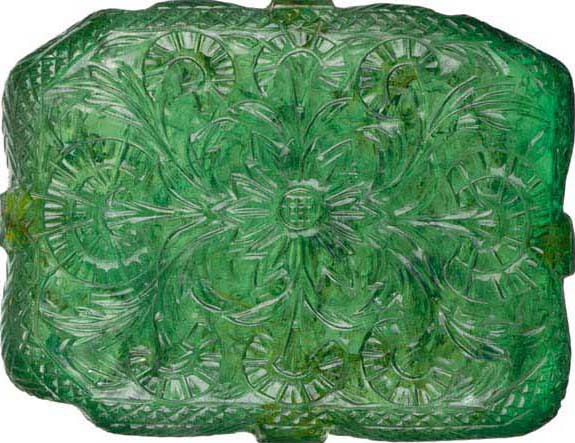WEEK ONE: EARLY
DAYS
The Khyber pass; Mahmud
Ghaznavi; Ghazni and Lahore in the 11th century;
short-lived but ambitious kingdoms in eastern
Afghanistan.
Readings from: Ikram,
Thapar, Ernst
Primary-source text:
al-Hujwiri, Kashf ul-Mahjub
WEEK TWO: THE
SULTANATE(S)
Early successes in
the 13th century, rapid evolution, constant
fluctuations, an equally swift breakup-- and to the
northwest, the Mongols always looming.
Readings from: Ikram,
Eaton
Primary-source text:
Manjhan's Madhumalati
WEEK THREE:
AKBAR AND HIS TIMES
An astonishing
emperor-- with his Rajput-based politics, his
religious eclecticism, his omnivorous interests, he
was almost too creative for his own good.
Readings from: Ikram,
Eaton, Alam
Primary-source text:
Abu'l-Fazl, Akbar-namah
WEEK FOUR: THE
MUGHAL EMPIRE
A large-scale
collaborative project, supported by many local
rulers for their own reasons, that might almost be
called the "Mughal-Rajput empire."
Readings from: Ikram,
Eaton, Richards
Primary-source text:
Jahangir, Jahangir-namah
WEEK FIVE:
AURANGZEB AND BEYOND
Succession struggles,
troubles in the Deccan, European powers nibbling at
the coasts, a slow but terminal decline-- does
Aurangzeb deserve all the blame?
Readings from: Ikram,
Eaton, Lal
Primary-source texts:
Bernier, Travels in the Mogul Empire;
Aurangzeb, Farewell
WEEK SIX: THE
BRITISH ARRIVE
Mercantilism and
expansion-- the East India Company is an important
new player but fits quite well (at first) into the
old power-politics games.
Readings from:
Metcalf, Alam, Srikanth
Primary-source text:
Dean Mahomed, The Letters of Dean Mahomed
WEEK SEVEN:
REACTIONS
Not only the bloody
revolt of 1857, but a complex range of other
responses to the multifarious and ever-expanding
reach of Company rule.
Readings from:
Metcalf
Primary-source text:
Sir Sayyid Ahmad Khan, Causes of the Indian
Revolt
WEEK EIGHT: URDU
POETRY
A look at classical
Urdu ghazal, one of the glories of world lyric
poetry, and at the life of Ghalib, its last and
greatest master.
Readings from: Naim
and Petievich, Pritchett, Russell
Primary-source texts:
Ghalib, Dastanbu (and letters, and one
ghazal)
WEEK NINE: NEW
IDEAS
A crucial moment of
decision: should Muslims throw in their lot with the
newly-formed "Indian National Congress," or should
they organize separately?
Readings from:
Metcalf, Hurst
Primary-source texts:
Hali, An Immortal Life; Sir Sayyid Ahmad
Khan, two crucial speeches
WEEK TEN: OTHER
VOICES
What about Shi'ite
Muslims? What about Muslim women? What roles have
they played in South Asia, and how have they made
their voices heard?
Readings from:
Oldenburg, Cole, Hasan, Schimmel
Primary-source texts:
Thanavi, Bihishti Zevar; Chughtai, "The
Wedding Shroud"
WEEK ELEVEN:
TOWARD INDEPENDENCE
The momentum builds,
but what's the best way to get rid of the British?
And how to decide what political structures should
replace them?
Readings from:
Metcalf, Rajmohan Gandhi, Akbar Ahmed
Primary-source texts:
Iqbal, Jinnah, speeches; Manto, "Toba Tek Singh"
WEEK TWELVE:
NOWADAYS
Plenty of blame to go
around: the always-troubled Afghan-Pakistani border,
the still-intractable struggle over Kashmir; but
some grounds for hope
Readings from:
Metcalf, Mishra, Traub, Kaplan
Primary-source text:
Husain, Basti
WEEK THIRTEEN:
OVERVIEW
Details to be
announced; class members will be involved in
choosing and presenting the materials.
Primary-source texts:
readings from: Hasan & Asaduddin, Naim, some
modern Muslims
COURSE
WEBSITE:
For access, log in through "Courseworks"
(The
main course website URL
is
password-protected)
List of texts to
be purchased from BookCulture (formerly
Labyrinth)
Richard M.
Eaton, The Rise of Islam and the Bengal
Frontier, 1204-1760. Berkeley: University of
California Press, 1993.
Aditya Behl and
Simon Weightman, trans. Manjhan's Madhumalati:
an Indian Sufi Romance. Oxford: Oxford
University Press, 2000.
Muzaffar Alam, The Languages of
Political Islam: India 1200-1800. New
Delhi: Permanent Black, 2004
Barbara D. and
Thomas R. Metcalf, A Concise History of India.
Cambridge: Cambridge University Press, 2002; OR:
A Concise
History of Modern India (Cambridge 2006),
the second edition (with title change). Either one
will be fine.
Ismat Cughtai, The
Quilt
and Other Stories. Tahira Naqvi, trans.
Riverdale-on-Hudson, NY: Sheep Meadow Press, 1994.


